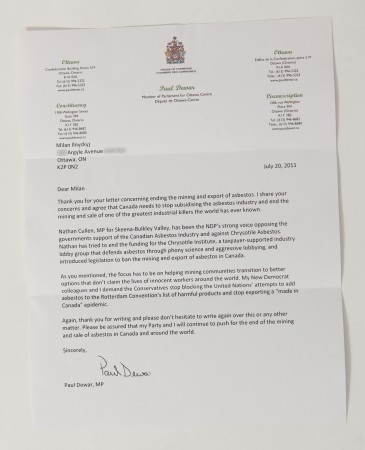Lawrence Martin’s 275-page account of the political life of Canadian Prime Minister Stephen Harper is useful reading for those who want to more fully understand how Canadian politics reached the arrangement it is now in, as well as those who wish to speculate more effectively about what the years ahead will involve. While Martin’s account is fairly hostile to Harper, the claims included within it are generally quite focused and backed by evidence. It is definitely written in the style of a journalist: opinionated, but with an awareness that everything will be fact checked. The book is packed with illuminating little details, from the way former Liberal Party leader Stephane Dion first arrived to work in Ottawa by bus to how the election-prompting decision to cut per-vote funding to political parties arrived was conveyed by unexpected BlackBerry message.
At times, Martin is sharply critical of Harper and the decisions of the Harper government. For instance, he objects strongly to the treatment of underage terrorist suspect Omar Khadr, the suppression of information on the torture of detainees in Afghanistan, as well as the fiscal record of the Conservative government. Martin argues that on many different policy files, the Harper government is driven by ideology and actively hostile to evidence. These include minimum sentences, drug policy, the long-form census, and others. The Harper government is also portrayed as obsessed with power for its own sake, rather than for the advancement of a well-articulated philosophy, as well as irrationally hostile to their political adversaries and those who disagree on policy grounds. In addition, the Harper government is portrayed as ignoring Canada’s constitutional conventions on matters like the supremacy of parliament, weakening government overall while strengthening the executive.
At many points, the book touches upon climate change and environmental topics. It probably won’t be too illuminating for people who have been following the file, but the details included strengthen the argument that the Harper government has largely seen climate change as a public relations problem to be managed, rather than a real-world issue of any importance to Canadians.
Written by someone who obviously has a great deal of personal experience with the various recent eras of Canadian politics, Harperland may be an especially worthwhile read for younger citizens who dimly remember the Chretien era that took place when they were children and who do not have any personal basis for comparing the recent Conservative governments to those earlier in Canadian history. The book also provides some personal details and character insights on Harper himself and those closely associated with him. It is interesting to read about how despair often precedes the re-emergence of resolution for him after a setback, or to have some examples of his documented vindictive streak provided. Matin quotes Charlie Angus in describing Harper’s “fundamental flaw” as “a mean streak, a level of viciousness that comes out”.
The book contains many references to the interactions between the political and bureaucratic sides of government, particularly on issues like access to information. There are also detailed accounts of the fates of various ministers and high-level advisors.
At times, Martin’s account is rather passionate – particularly concerning the near-emergence of a Liberal-NDP coalition. Particularly when describing this time period, the author seems to be shouting after-the-fact advice to journalists and the opposition. I haven’t been keeping track of his journalistic contributions elsewhere, so it is possible that he is simply re-asserting claims of his own that he feels have been vindicated by future events.
One thing that annoyed me a bit about the book is Martin’s habit of using ‘the West’ as a synonym for ‘Alberta’. It may look that way to someone who sees Ontario and Quebec as the centre of the political universe, but it looks awfully different from British Columbia.
Harperland does praise some successes of the Conservative government. In the ‘achievement log’ he places “the granting of nation status to the Quebecois, the apology to the Native peoples on residential schools, corporate tax reductions, the softwood lumber accord, and the Haitian earthquake rescue effort”. In the end, however, Martin’s verdict is fairly strongly negative:
As a strongman prime minister, [Harper] was beyond compare. He made previous alleged dictators like Jean Chretien look like welterweights. It was no small wonder that Canadians feared what he might do with a majority government. With that kind of power he could establish a hegemony the likes of which Canadians could not imagine.
Martin will have to provide an update in four years or so.


